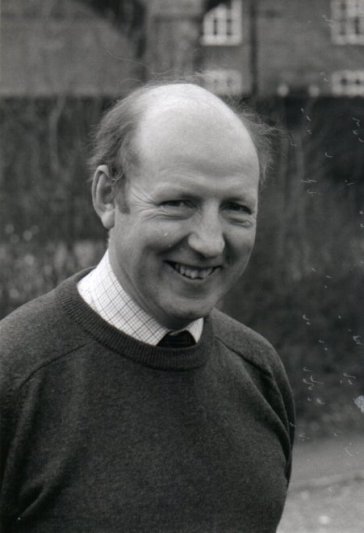Barrie Trinder was born in Banbury, Oxfordshire, in 1939. He read Modern History at St Catherine’s College, Oxford, where he was awarded a degree in Modern History in 1961, and a Diploma in Education the following year. From 1975 he studied part-time in the Department of English Local History at the University of Leicester where he gained his doctorate in 1980. |
|
His first post was as history master at Churchfields Comprehensive School, West Bromwich. In 1965 he was appointed by Shropshire County Council to a post in adult education in which he had a specific responsibility to develop historical studies in the new town (now Telford) in the Coalbrookdale Coalfield. He did this, not just in Telford but throughout Shropshire, through lecture and research classes and programmes of guided walks, and by developing links with voluntary organisations. He was involved with the Ironbridge Gorge Museum from its inception, and served on the Museum’s executive board, and as its honorary historian between 1971 and 1990. From 1980 he was seconded by the County Council to work for part of his |
 |
time for the University of Birmingham at the Ironbridge Institute, where, as Senior Research Fellow, he played a leading role in the establishment of postgraduate courses, research programmes and consultancy projects. In 1996 he took up the post of Senior Lecturer in Industrial Archaeology, at Nene College (subsequently University College Northampton) from which he retired in 2001.
Barrie Trinder has a long record of involvement in local history. He edited Cake & Cockhorse, the journal of the Banbury Historical Society, between 1962 and 1973, setting high standards that have been followed by other local societies. Between 1965 and 1975 he edited a similar publication for the Shropshire Archaeological Society. He acted as secretary of the Association of Local History Tutors between 1978 and 1990, and was reviews editor of The Local Historian between 1984 and 1988. Barrie Trinder has been involved in historical and archaeological activities in other countries throughout his career. With Neil (now Sir Neil) Cossons he organised the First International Congress on the Conservation of the Industrial Heritage held at Ironbridge in 1973. He has lectured in Japan, South Africa, Canada, the United States and in most countries in western Europe, and has acted as a consultant for projects concerned with the industrial heritage in Germany, Greece, Italy and Spain. In 1984 he was appointed editor of The Blackwell Encyclopedia of Industrial Archaeology, a major reference work extending to nearly a thousand pages that was published in 1992. He edited the bulletin of the International Committee on the Conservation of the Industrial Heritage (TICCIH) between 1984 and 1996, and represented that organisation at the UNESCO Conference on Authenticity at World Heritage Sites at Nara in 1994. |